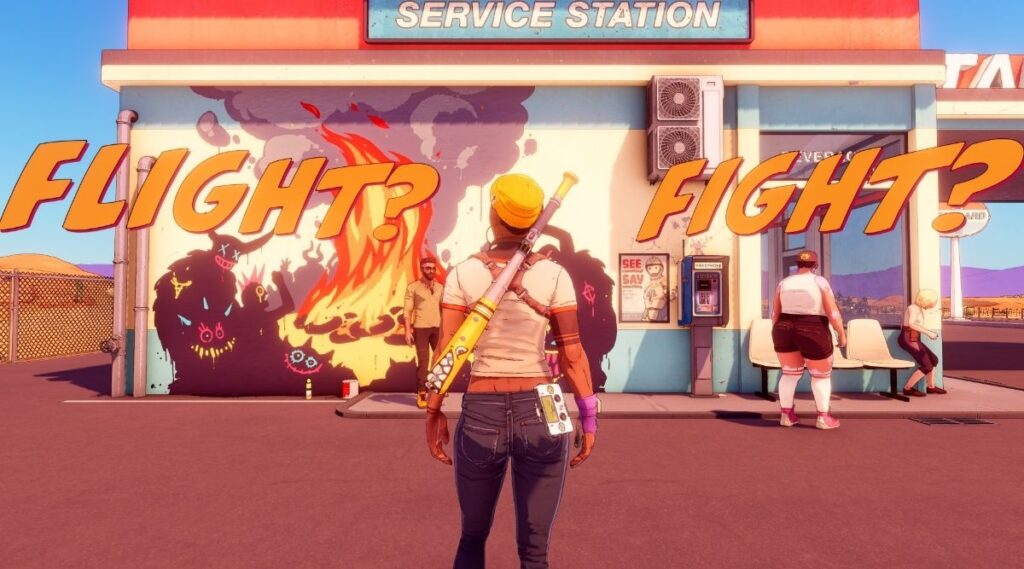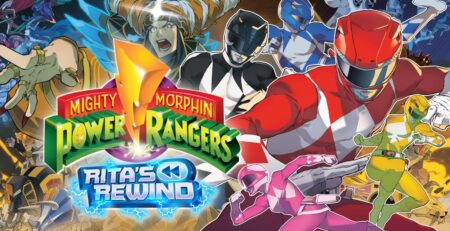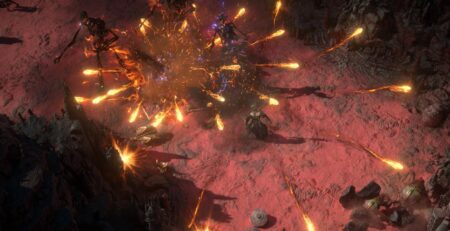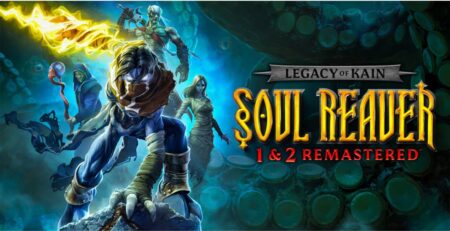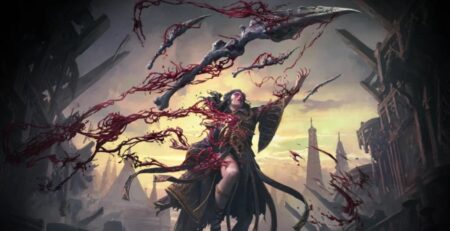When you’re road-tripping across the country, it’s important to remember the essentials: food and drink, friends, and some good music. But if you’re developer Red Thread Games, you’ll also include a dystopian wasteland and superpowers. Their latest title, Dustborn, published by Spotlight by Quantic Dream, takes all these disparate elements and fuses them into a punk rock odyssey. This choice-driven narrative has a few highlights, but a few too many obstacles get in the way of a truly fulfilling adventure.
After stealing a package from a techno-religious cult, Pax and her friends flee their home to deliver the contraband to safety. Set in the not-too-distant future of an alternate-history U.S., Pax and her friends will have to avoid biker gangs, fascist enforcers, rogue robots, and more to reach the East Coast, posing as a touring rock band to survive. Each chapter of Dustborn is presented as an issue of a comic book series, which is appropriate because most of your allies possess superpowers of some sort.
These ‘Vox” abilities are typically voice-activated, such as Pax stopping people in their tracks with a shout or her ex-partner Noam literally gaslighting people into calming down, powers that inherently raise questions on ethics. While some of the group’s abilities resemble standard comic book fare, such as super strength and durability or speed, it was fun to see the more socially-themed powers affecting your decisions.
One of Dustborn’s biggest strengths is how it tracks your companions’ state. As Pax, you’re something of a clean slate, but the rest of the characters have their own interests, fears, and beliefs. Instead of tracking these in a binary ‘good or evil’ chart or earning affection with each companion, they’re instead fueled by three core tenets that differ for each person. Noam is a bit of a loner, but the thought of returning home to Hong Kong or rekindling their relationship with Pax can help them to open up to the group. Theo, the mastermind behind the heist, is the de facto leader of the operation, but with the right decisions, he can loosen up and become a trusted friend.
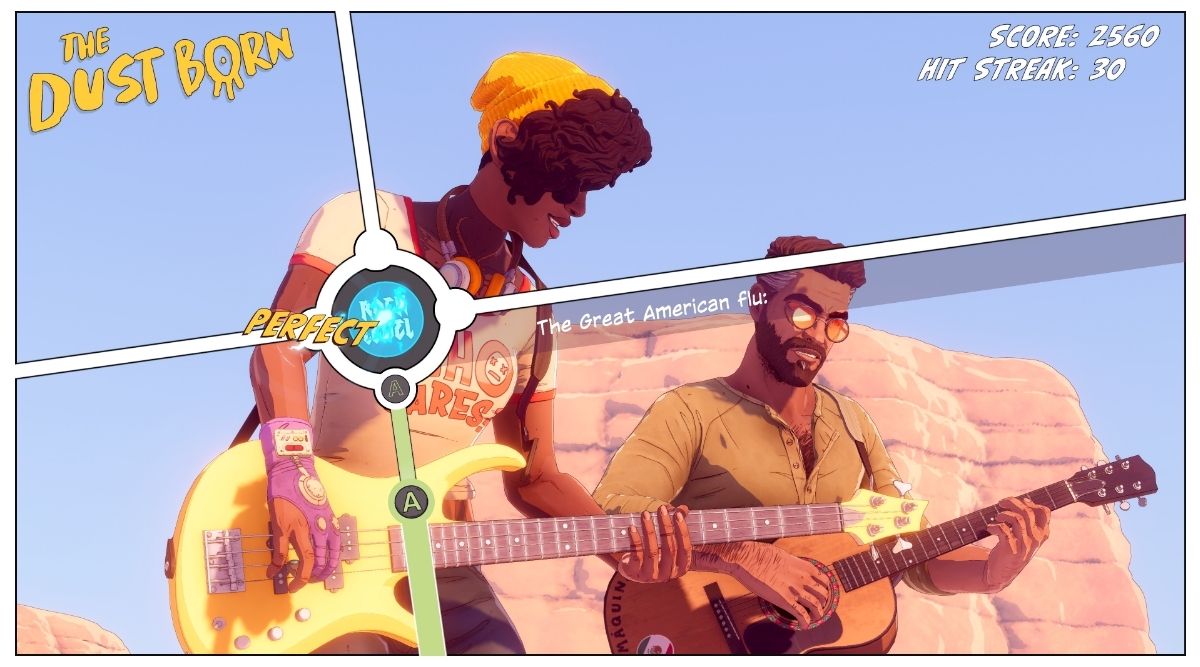
These paths allow for more dynamic interactions with the party, where instead of making decisions so everyone will like you, you’re considering what’s best for your allies. Should your best friend Sai act impulsively and leap to defend the weak, or should she be more logical and think about the big picture? Additionally, their strongest path affects how they react to certain conversations, allowing you to understand when your decisions have influenced the narrative.
With narrative being such a key facet of Dustborn, it’s no surprise that every conversation is fully voice-acted. For the most part, the actors do a fantastic job of bringing the characters to life, and their personalities become clear very quickly. There are, however, times when the dialogue feels stilted or simply falls flat. Sometimes it’s the writing; sometimes, it’s the voice acting. Thankfully, these moments are few and far between.
Armed with a baseball bat, Pax has to use more than her words to settle a conflict continuously. Dustborn is not what you’d call a combat-heavy experience, which may explain why combat feels so stiff and unnecessary. You can use your shouts during combat to make things easier, but robotic enemies are naturally unaffected. You also have access to taunt attacks and combo attacks, where one of your allies activates their Vox, which both deal heavy damage.
But ultimately, the combat just doesn’t feel very satisfying. Even when you earn new Vox abilities, there’s rarely a reason to use one over the other since they all seem to disorient enemy combatants equally. Upgrading your bat adds a little more depth, but these added boons just resolve combat quicker, further trivializing these moments.
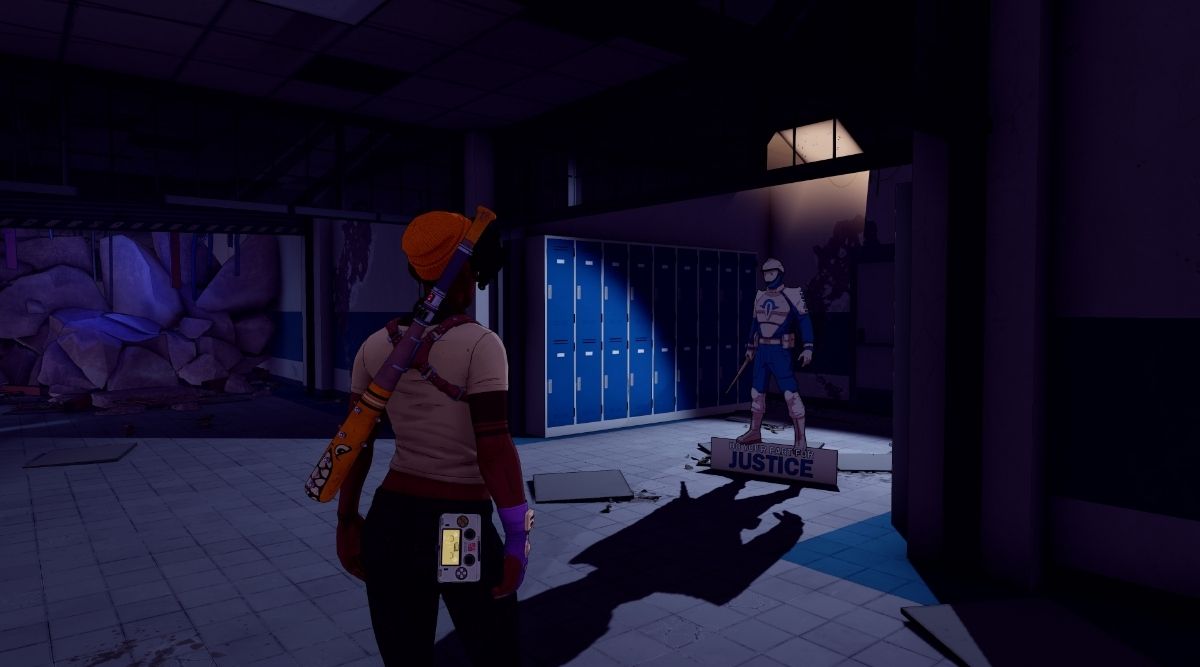
The final major component of the game is the rhythm game segments. These occur when Pax is writing a new song, rehearsing, or when the band is performing. Narratively, these are fun moments, like when you have to perform well to convince the border authority that you really are a traveling band or by way of apology with a former enemy faction.
Much like the combat, however, playing a song feels like a filler activity. While it’s true that the songs Pax writes are thematically consistent with the overarching narrative, you’re able to ignore the new songs you write and play the first song repeatedly, taking away some of the relevance of such segments. Fortunately, these segments are fairly short, and the songs are somewhat catchy, but they’re over fairly quickly if you don’t enjoy the music.
Dustborn takes a group of very different people and gives them a common goal, highlighting the things that bring them together instead of what makes them different. It’s not subtle about its themes; at one point, you’re purging a camp of the invisible Echoes infesting it, which Pax refers to as bits of living misinformation that cause paranoia and increased hostility in the people around. While it’s fairly blunt, these narrative beats are also the most enjoyable part of Dustborn. Unfortunately, there’s just too much that stops it from putting the pedal to the metal and reaching its full potential.
Dustborn releases August 20 on PlayStation 4, PlayStation 5, Xbox One, Xbox Series X|S, and PC.
Dustborn
-
Rating - 6.5/106.5/10
TL;DR
Dustborn’s narrative beats are also the most enjoyable part of the game, but there’s too much stopping it from reaching its full potential

